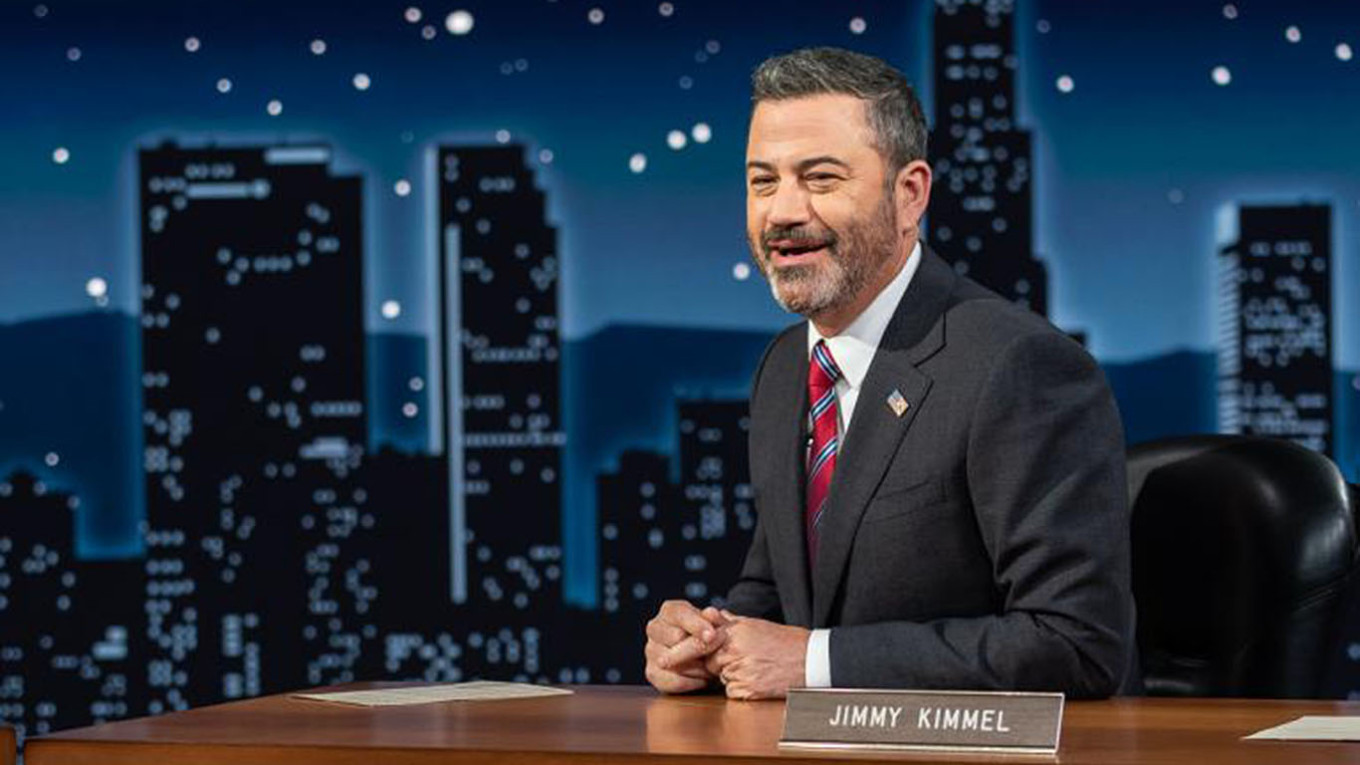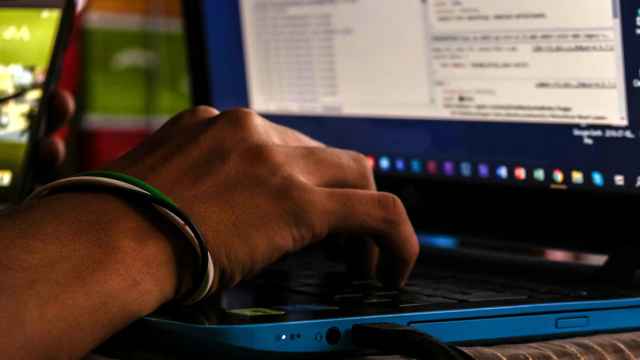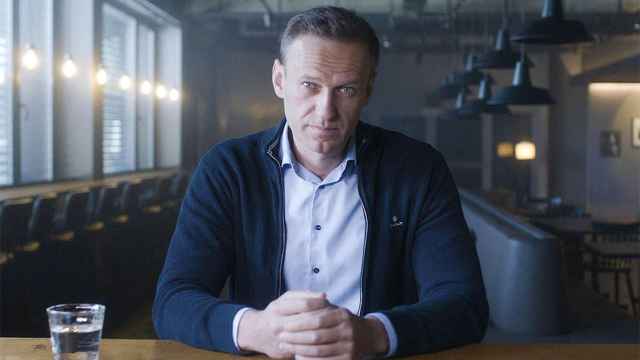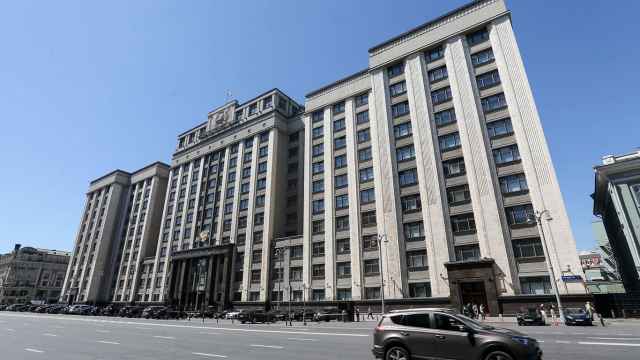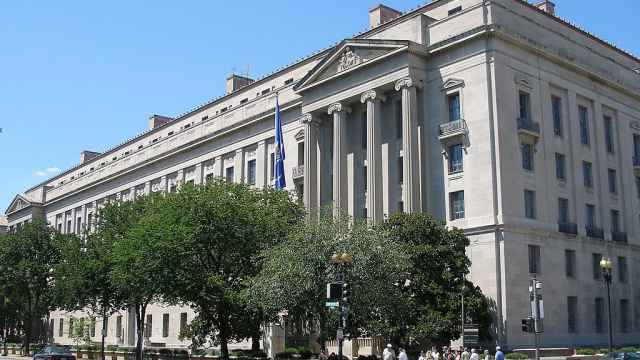The removal from the air of a second American comedian since President Donald Trump was elected in the United States should send chills down the spine of every journalist who worked in Moscow in the early 2000s. That was how President Vladimir Putin began consolidating his power — by attacking mainstream media, starting with television and, notably, TV comedians.
In 2000, Putin was deeply unhappy with the coverage he was getting on the NTV television channel, whose journalists were trained in the West instead of Soviet institutions, which was critical of Putin and his war in Chechnya. He was particularly annoyed by the way he was portrayed in “Kukly” (“Puppets”), a TV show authored by liberal satirist Viktor Shenderovich, featuring puppet characters of Russian politicians. It was the most-watched show in the country.
The Kremlin launched a multifaceted attack on NTV, including staging raids on its parent media holding. It did result in “Kukly” being taken off the air, among other consequences, including the expulsion of the core of the NTV editorial office from the channel.
What was really shocking was that many Russian liberal journalists and public intellectuals were quick to rationalize the attack on NTV and “Kukly.” They deliberately chose to ignore the early signs of the repressive regime Putin was building, justifying it by saying the country needed fixing and had to become strong.
In “Our Dear Friends in Moscow,” the book I co-authored with Irina Borogan, we describe how the leading Russian arts critic Alexander Arkhangelsky attacked the NTV channel in Izvestia — the newspaper we both worked at — accusing the channel of getting boring. He also hinted that Shenderovich regularly sought advance approval of the themes for the show from his bosses, contrary to what Shenderovich claimed.
Shenderovich, indignant, responded with an open letter to the arts critic, which was printed in Izvestia. The two then talked, and Izvestia published their conversation.
It was a conversation between two very polite and intelligent people who had completely ceased to understand each other. Shenderovich, prophetically, warned that 2000 could be a second 1929, the last year of relative freedom before Stalin’s terror: “We, settling our old inter-group scores today, are risking ending our discussion in the same place where the right and left ‘deviationists’ [the term used by Stalin to attack his political opponents] ended it in their time.”
Shenderovich’s prophecy was, indeed, fulfilled under Putin. These days, Shenderovich lives in exile in Warsaw, branded a “foreign agent” by the Russian government. His critic, Arkhangelsky, ironically, also found himself on the list of foreign agents in November 2024.
Dictators tend to be highly skilled at winning over the country’s intellectuals. When they succeed, the intellectuals are happy to stay silent or provide intellectual ammunition that would justify repression.
“Boring, low ratings, they lost the edge” — we heard a lot of that during the attack on the NTV, and the very similar message seems to be spread in justification for taking Stephen Colbert and Jimmy Kimmel off air, mostly via social media by people with huge followings.
But why did Russia’s thought leaders agree to play such a role?
This co-option appears to be based on two major pillars. The first one, and the most obvious, is a promise of access and the illusion of influence to the Kremlin.
The second pillar is playing on the sense of grievance and anger against those occupying leading positions in the mainstream media.
Many of our “dear friends” in Moscow who chose the dark side told us how angry they were about the liberal media. “I spent the 1990s under liberal censorship!” Pyotr Akopov exclaimed.
He is the same Akopov who had, infamously, called for a “solution to the Ukrainian question” in 2022. His op-ed was too much even for RIA Novosti and was taken down. The other, Evgeny Krutikov, explained to me why he hated liberal journalists: “In the 90s, these people considered themselves the kings of the world!”
That is what the intellectuals on the dark side tell themselves, apparently — hoping, among other things, to fill the positions cleansed of ideological enemies. For a few years, it could work — but only for a few years.
The thing is, such romances never last. At the end of the day, even intellectuals who had sided with Putin eventually lost their access to the Kremlin. Even our “dear friends” admitted that. In the end, they just found themselves trapped in a country walled off from the West and waging a brutal, horrible war.
When Putin had just come to power, one of our older, more experienced colleagues wrote an article for our website, headlined: “Don’t fool yourselves — you can’t make friends with a crocodile.”
He warned: The crocodile will eat you eventually. All you can do is buy yourself some time.
A Message from The Moscow Times:
Dear readers,
We are facing unprecedented challenges. Russia's Prosecutor General's Office has designated The Moscow Times as an "undesirable" organization, criminalizing our work and putting our staff at risk of prosecution. This follows our earlier unjust labeling as a "foreign agent."
These actions are direct attempts to silence independent journalism in Russia. The authorities claim our work "discredits the decisions of the Russian leadership." We see things differently: we strive to provide accurate, unbiased reporting on Russia.
We, the journalists of The Moscow Times, refuse to be silenced. But to continue our work, we need your help.
Your support, no matter how small, makes a world of difference. If you can, please support us monthly starting from just $2. It's quick to set up, and every contribution makes a significant impact.
By supporting The Moscow Times, you're defending open, independent journalism in the face of repression. Thank you for standing with us.
Remind me later.



